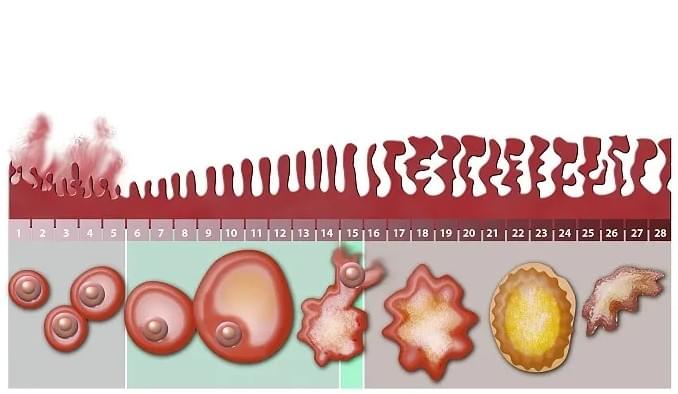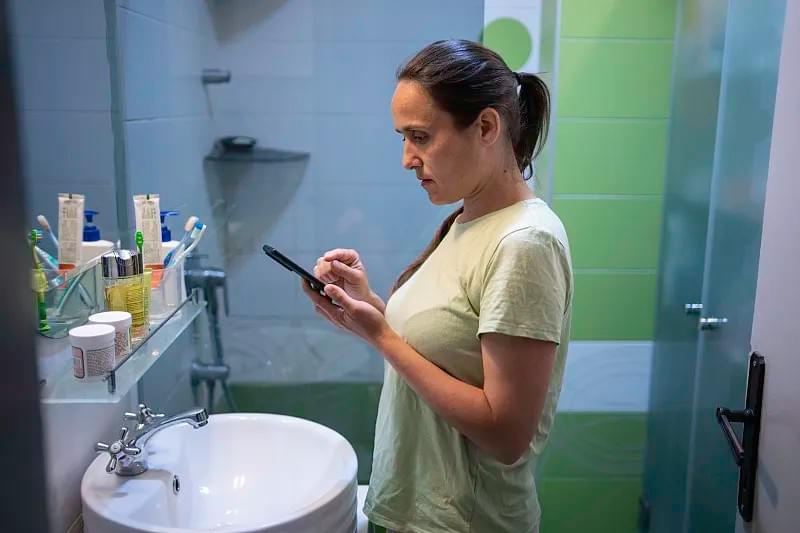A missed or delayed period can be one of the most anxiety-inducing experiences for people who menstruate. Whether you're trying to conceive, avoiding pregnancy, or simply tracking your cycle for health reasons, a late period often raises immediate questions. The most common one being: How many days can you be late on your period? While the average menstrual cycle is 28 days, it's crucial to understand that variations are normal—and being late doesn’t always signal pregnancy or a serious health issue.
In this comprehensive guide, we’ll explore the typical length of menstrual cycles, the most common causes of delayed periods, how many days late is considered normal, and when it’s time to consult a healthcare provider. We’ll also discuss how tracking your cycle can improve reproductive health awareness and help you respond appropriately to changes.
Understanding the Menstrual Cycle: What's Normal?
The menstrual cycle is a complex process regulated by a delicate balance of hormones, including estrogen and progesterone. A typical cycle begins on the first day of your period and ends the day before your next period starts. While 28 days is often cited as the average, research shows that normal cycle lengths can range from 21 to 35 days in adults and from 21 to 45 days in teens.
Ovulation—the release of an egg from the ovary—usually occurs around day 14 of a 28-day cycle, but this can vary significantly. Some people ovulate earlier; others later. This natural variation means that occasional shifts in your period’s arrival are not only common but expected.
A period is generally considered "late" if it hasn’t started within five or more days past your expected start date. However, being late by up to 10 days can still fall within the range of normal, especially if you have an irregular cycle. Only when a period is more than 35 days overdue (and you're not pregnant) should you consider it a missed period, which may indicate an underlying issue.

Common Reasons for a Late Period (Other Than Pregnancy)
While pregnancy is the first concern for many, numerous non-pregnancy-related factors can delay your period. Understanding these can help reduce unnecessary stress and guide appropriate action.
1. Stress and Mental Health
Chronic stress—whether emotional, physical, or psychological—can disrupt the hypothalamus, the part of the brain that regulates hormones controlling the menstrual cycle. High cortisol levels (the stress hormone) can interfere with the release of gonadotropin-releasing hormone (GnRH), which is essential for ovulation.
Life events such as job loss, exams, relationship issues, or grief can delay ovulation and, consequently, your period. In some cases, stress-induced amenorrhea (absence of menstruation) can last for months.
2. Significant Weight Changes
Both rapid weight loss and significant weight gain can impact your cycle. Fat tissue plays a role in estrogen production, and low body fat can suppress ovulation. Eating disorders like anorexia nervosa or bulimia are often associated with missed periods.
Conversely, obesity can lead to excess estrogen production, which may disrupt ovulation and cause irregular or infrequent periods.
3. Intense Exercise
Athletes and individuals engaging in high-intensity training may experience functional hypothalamic amenorrhea. This condition occurs when excessive exercise, combined with low energy availability, suppresses reproductive hormones. Long-distance runners, gymnasts, and dancers are particularly at risk.
4. Polycystic Ovary Syndrome (PCOS)
PCOS is one of the leading causes of irregular periods. It affects up to 10% of people of reproductive age and is characterized by hormonal imbalances, insulin resistance, and the development of small cysts on the ovaries. Symptoms include irregular or absent periods, acne, weight gain, and excess hair growth.
Because PCOS interferes with regular ovulation, periods may be delayed by weeks or even months.
5. Thyroid Disorders
Both hypothyroidism (underactive thyroid) and hyperthyroidism (overactive thyroid) can affect menstruation. The thyroid gland regulates metabolism, and imbalances can disrupt the entire endocrine system, including reproductive hormones.
Symptoms like fatigue, weight changes, and hair loss may accompany menstrual irregularities in thyroid conditions.
6. Perimenopause
For individuals over 40, a late or irregular period may be an early sign of perimenopause—the transitional phase before menopause. Hormone levels fluctuate unpredictably during this time, leading to skipped periods, heavier or lighter bleeding, and changes in cycle length.
Perimenopause can last several years before periods stop completely.
7. Medications and Medical Treatments
Certain medications, including hormonal contraceptives, antipsychotics, chemotherapy drugs, and some antidepressants, can alter your cycle. Birth control, especially progestin-only pills or intrauterine devices (IUDs), may cause lighter periods or even temporary amenorrhea.
Switching or stopping birth control can also lead to a delayed first post-pill period, sometimes taking several months to regulate.

When to Take a Pregnancy Test
If you’ve had unprotected sex and your period is late, pregnancy is a possibility. Most home pregnancy tests are accurate as early as the first day of your missed period. They detect human chorionic gonadotropin (hCG), a hormone produced after implantation.
For the most reliable result:
- Wait at least one week after a missed period.
- Use the first morning urine, which has the highest hCG concentration.
- Follow the test instructions carefully.
If the test is negative but your period still hasn’t arrived after another week, retest or consult a healthcare provider. False negatives can occur if testing too early.
When to See a Doctor
While occasional cycle variations are normal, certain signs warrant medical evaluation:
- Your period is more than 35 days late and pregnancy has been ruled out.
- You’ve missed three or more periods in a row.
- You experience severe pelvic pain, unusual discharge, or symptoms like excessive hair growth or acne.
- You’re under 15 and haven’t started menstruating.
- You’re over 45 and experience sudden, heavy bleeding after months of no periods.
A healthcare provider may perform blood tests (to check hormone levels), a pelvic exam, or an ultrasound to diagnose conditions like PCOS, thyroid dysfunction, or premature ovarian insufficiency.
How to Track Your Cycle Effectively
Tracking your menstrual cycle can help you identify patterns, predict ovulation, and detect irregularities early. Consider using a combination of methods:
- Menstrual tracking apps: Many apps allow you to log period start/end dates, symptoms, mood, and cervical mucus.
- Basal body temperature (BBT) charting: A slight rise in BBT indicates ovulation has occurred.
- Ovulation predictor kits (OPKs): These detect the luteinizing hormone (LH) surge that precedes ovulation.
- Cervical mucus monitoring: Fertile mucus is clear, stretchy, and resembles egg whites.
Consistent tracking over several months provides valuable data for both personal awareness and medical consultations.

Lifestyle Tips to Support Regular Cycles
Maintaining a healthy lifestyle can promote hormonal balance and regular menstruation:
- Eat a balanced diet rich in whole grains, lean proteins, healthy fats, and vegetables.
- Exercise moderately—aim for 30 minutes most days, avoiding overtraining.
- Manage stress through mindfulness, yoga, meditation, or therapy.
- Maintain a healthy weight—avoid extreme dieting or rapid weight changes.
- Get enough sleep—7 to 9 hours per night supports hormonal regulation.
Small, sustainable changes can make a significant difference in cycle regularity over time.
Conclusion: Late Periods Are Common—But Know Your Body
So, how many days can you be late on your period? While a delay of up to 10 days is generally within the normal range, every individual’s cycle is unique. Occasional irregularities are common and often resolve on their own. However, persistent delays, missed periods, or accompanying symptoms should not be ignored.
The key is awareness. By understanding your body, tracking your cycle, and recognizing what’s normal for you, you can respond appropriately to changes and seek help when needed. If in doubt, always consult a healthcare professional for personalized advice.
Remember: a late period isn’t always a crisis. Sometimes, it’s just your body responding to life’s natural rhythms.

